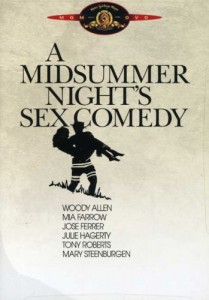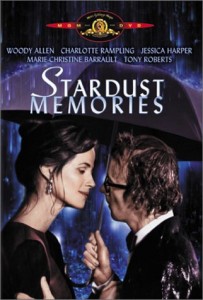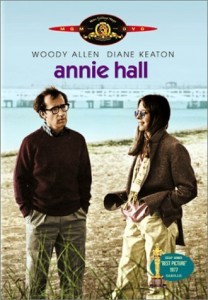 Hannah and Her Sisters, the 14th film Woody Allen directed, was awarded the Oscar for Best Original Screenplay.
Hannah and Her Sisters, the 14th film Woody Allen directed, was awarded the Oscar for Best Original Screenplay.
I can see why. It is a very consistent, compelling movie.
From its entry on Wikipedia:
Hannah and Her Sisters is a 1986 American comedy-drama film which tells the intertwined stories of an extended family over two years that begins and ends with a family Thanksgiving dinner. The film was written and directed by Woody Allen, who stars along with Mia Farrow as Hannah, Michael Caine as her husband, and Barbara Hershey and Dianne Wiest as her sisters.
The story is told in three main arcs, with almost all of it occurring during a 24-month period beginning and ending at Thanksgiving parties hosted by Hannah (Mia Farrow) and her husband, Elliot (Michael Caine). Hannah serves as the stalwart hub of the narrative; her own story as a successful actress (a recent success as Nora in A Doll’s House) is somewhat secondary, but most of the events of the film connect to her.
Part of the film’s structure and background is borrowed from Ingmar Bergman’s Fanny and Alexander. In both films, a large theatrical family gather for three successive year’s celebrations (Thanksgiving in Allen’s film, Christmas in Bergman’s). The first of each gathering is in a time of contentment, the second in a time of trouble, and the third showing what happens after the resolution of the troubles. The sudden appearance of Mickey’s reflection behind Holly’s in the closing scene also parallels the apparition behind Alexander of the Bishop’s ghost.
An interesting exchange occurs in a segment titled “The Hypochondriac.”
The scene is with Mickey (Woody Allen), a TV writer and Ed Smythe (J.T. Walsh), a Standards & Practices representative. Gail (Julie Kavner) stands nearby, offering support for Mickey.
Mickey: Why all of a sudden is the sketch dirty?
Smythe: Child Molestation is a touchy subject with the affiliates.
Mickey: Read the papers. Half the country’s doing it.
Smythe: Yes, but you name names.
Mickey: We do not name names. We say the Pope.
Smythe: That sketch cannot go on the air.
This subject – child molestation/pedophilia – is one that recurs in Continue reading



